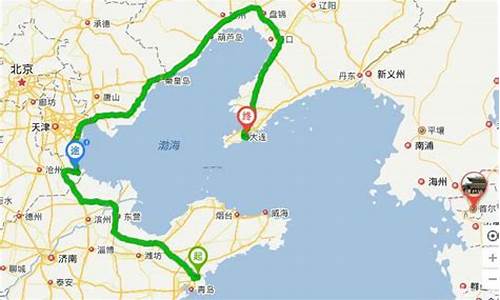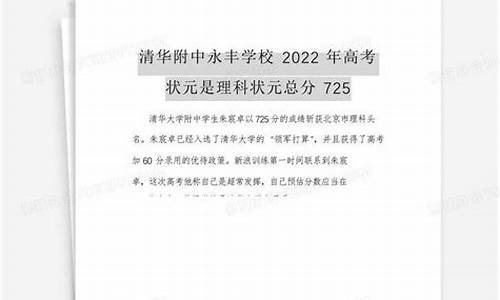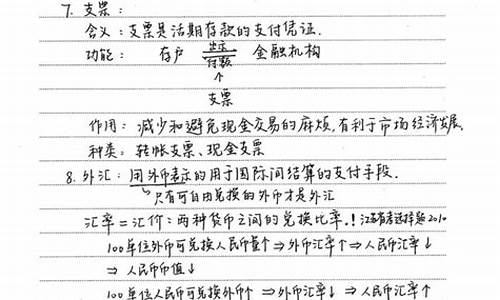您现在的位置是: 首页 > 教育新闻 教育新闻
2013冠词高考-冠词 高考
tamoadmin 2024-08-26 人已围观
简介1.高考英语考点2.冠词高考题的详解13.关于英语高考!4.高考英语冠词题,经常做错,很迷茫……各位看看我的错题高考英语考点识在于积累、学习在于思考12015年高考英语语法单选超级归纳一、冠词冠词分为不定冠词(a, an),定冠词(the),和零冠词。I.不定冠词的用法1指一类人或事,相当于a kind ofA plane is a machine that can fly.2第一次提及某人某物,
1.高考英语考点
2.冠词高考题的详解1
3.关于英语高考!
4.高考英语冠词题,经常做错,很迷茫……各位看看我的错题
高考英语考点

识在于积累、学习在于思考
1
2015
年高考英语语法单选超级归纳
一、冠词
冠词分为不定冠词(
a, an
)
,定冠词(
the
)
,和零冠词。
I.
不定冠词的用法
1
指一类人或事,相当于
a kind of
A plane is a machine that can fly.
2
第一次提及某人某物,非特指
A boy is waiting for you.
有个男孩在等你。
3
表示“每一”相当于
every
one
We study eight hours a day.
4
表示“相同”相当于
the same
We are nearly of an age.
5
用于人名前,表示不认识此人或与某名人有类似性质的人或
事
—
Hello, could I speak to Mr. Smith?
—
Sorry, wrong number. There isn't______ Mr. Smith here.
A.
不填
B. a
C. the
D. one
That boy is rather a Lei Feng.
(活雷锋)
6
用于固定词组中
a couple of, a bit, once upon a time, in a hurry, he a walk, many a time
7
用于
quite, rather, many, half, what, such
之后
This room is rather a big one.
8
用于
so(as, too, how)+
形容词之后
She is as clever a girl as you can wish to meet.
9
用于抽象名词具体化的名词前
success(
抽象名词
)
→
a success(
具体化
)
成功的人或事
a failure
失败的人或事
a shame
带来耻辱的人或事
a pity
可惜或遗憾的事
a must
必需必备的事
a good knowledge of
精通掌握某一方面的知识
II.
定冠词的用法
1
表示某一类人或物
In
many
places
in
China,
___
bicycle
is
still
___
popular
means
of
transportation.
A. a; the
B. /; a
C. the; a
D. the; the
2
用于世上独一无二的事物名词前
the universe, the moon, the Pacific Ocean
3
表示说话双方都了解的或上文提到过的人或事
Would you mind opening the door?
4
用于演奏乐器
play the violin, play the guitar
5
用于形容词和分词前表示一类人
the reach, the living, the wounded
6
表示“一家人”或“夫妇”
(对比上文的不定冠词用法
5
)
—
Could you tell me the way to ____ Johnsons, please?
—
Sorry, we don’t he ____ Johnson here in the village.
A. the; the
B. the; a
C. /; the
D. the; /
7
用于序数词和形容词副词比较级最高级前
He is the taller of the two children.
8
用于国家党派等以及江河湖海,山川群岛的名词前
the United States, the Communist Party of China, the French
9
用于表示发明物的单数名词前
The compass was invented in China.
10
在逢十的复数数词之前,指世纪的某个年代
in the 1990’s
(
二十世纪九十年代
)
11
用于表示度量单位的名词前
I hired the car by the hour.
12
用于方位名词,身体部位名词
He patted me on the shoulder.
III.
不用冠词(又名零冠词)的用法
1
专有名词,物质名词,抽象名词,人名地名等名词前
Beijing University, Jack, China, love, air
2
名词前有
this, my, whose, some, no, each, every
等限制
I want this book, not that one. /
Whose purse is this?
3
季节,月份,星期,节日,一日三餐前
March, Sunday, National Day, spring
4
表示职位,身份,头衔的名词前
Lincoln was made President of America.
5
表示球类,棋类等运动的名词前
He likes playing football/chess.
6
与
by
连用表示交通方式的名词前
We went right round to the west coast by ______ sea instead of driving
across ______ continent.
A. the; the
B.
不填;
the
C. the;
不填
D.
不填;不填
7
以
and
连接的两个相对的名词并用时
husband and wife, knife and fork, day and night
知识在于积累、学习在于思考
2
8
表示泛指的复数名词前
Horses are useful animals.
二、
名词和主谓一致
I.
名词的种类
专有名词
普通名词
国名地名人名,团体机构名称
可数名词
不可数名词
个体名词
集体名词
抽象名词
物质名词
特别注意名词类别的相互转换
个体名词与抽象名词的相互转换
例
句
意
义
名词性质
①
She held some flowers in her hand.
②
The trees are now in flower
花儿
个体名词
开花
抽象名词
①
Youth is beautiful.
②
He is a youth of twenty
青春
抽象名词
年轻人
个体名词
①
They he achieved remarkable success in their work.
②
—
How about the Christmas evening party?
—
I should say it was a success.
成功
抽象名词
成功的事
个体名词
物质名词与个体名词的相互转换
例
句
意
义
名词性质
①
Iron is a kind of metal.
②
Please lend me your iron.
铁
物质名词
熨斗
个体名词
①
He broke a piece of glass.
②
He broke a glass.
玻璃
物质名词
玻璃杯
个体名词
①
I bought a chicken this morning
②
Please help yourself to some chicken
小鸡
个体名词
鸡肉
物质名词
抽象名词与个体名词的转换
具有动作意义的抽象名词加用
与某些动词(如:
he
等)连
用,表示某一次短暂的动作
①—
I’d like______information about the management of your hotel,please.
—
Well, you could he____word with the manager. He might be helpful
A.some,a
B.an,some
C.some,some
D.an,a
②
They sent us
word of the latest henings.
消息
(抽象名词)
A.a
B.an
C./
D.the
③
Could we he
word before you go to the meeting?
话(个体名词)
A.a
B.an
C./
D.the
类例:
he a dream/a rest/a smoke/a swim/a trip/a wash/a discussion/a look
take a walk/a bath
make an advance(
进步
)/make an early start(
早点出发
)
/make a decision/make a change/give a cry of pain(
发出痛苦的叫声
) /give a try
表示知识和时间的抽象名词转
换为普通名词时可以用来表示
其中的一部分
①
Many people agree that___knowledge of English is a must in____international trade today.
A.a,
/
B.the, an
C.the, the
D. /, the
a knowledge of truth(
知道实际情况
)
give a fuller knowledge of China(
提供关于中国更为翔实的知识
)
he a knowledge of shorthand(
有速记的知识
)
②
If there were no examination, we should he______at school.
A.the hiest time
B.a more hier time
C.much hiest time
D.a much hier time
③
is money.
A.The time
B.A time
C.Time
D.Times
抽象名词转换为普通名词可用
来表示“一次、一阵、一种”
具体的行为、、现象或结
果。这时名词前往往有形容词
修饰
①
Oh, John. _____you ge me!
A.How a pleasant surprise
B.How pleasant surprise
C.What a pleasant surprise
D. What pleasant surprise
②
She looked up
when I shouted.
A.in a surprise
B.in the surprise
C.in surprise
D.in some surprise
其它例子:
The gift came as a complete surprise to me. We he had some unpleasant surprise
③
It is_____work of art that everyone wants to he a look at it.
A.so unusual
B. such unusual
C.such an unusual
D.so an unusual
II.
名词的数
规则名词的复数形式:名词的复数形式,一般在单数形式后面加
-s
或
-es
(参看有关语法书)
。英语里有些名词的复数形式是不规则的,请
看下表
规
则
例
词
1
改变名词中的元音字母或其他形式
man-men, woman-women, foot-feet, goose-geese, mouse-mice
2
单复数相同
sheep, deer, series, means, works, fish, species
3
只有复数形式
ashes, trousers, clothes, thanks, goods, glasses, compasses, contents
知识在于积累、学习在于思考
3
4
一些集体名词总是用作复数
people, police, cattle, staff
5
部分集体名词既可以作单数
(整体)
也可以作复数
(成
员)
audience,
class,
family,
crowd,
couple,
group,
committee,
,
population, crew, team, public, enemy, party
6
复数形式表示特别含义
customs(
海关
),
forces(
军队
),
times(
时代
),
spirits(
情绪
),
drinks(
饮料
),
sands(
沙滩
),
papers(
文件报纸
),
manners(
礼貌
),
looks(
外表
),
brains(
头脑
智力
), greens(
青菜
), ruins(
废墟
)
7
表示
“某国人”
加
-s
Americans, Australians, Germans, Greeks, Swedes, Europeans
单复数同形
Swiss, Portuguese, Chinese, Japanese
以
-man
或
-woman
结
尾
的
改
为
-men,-women
Englishmen, Frenchwomen
8
合成名词
将主体名词变为复数
sons-in-law, lookers-on, passers-by, story-tellers, boy friends
无主体名词时将最后一部分变为复数
grown-ups, housewives, stopwatches
将两部分变为复数
women singers, men servants
III.
主谓一致
规则
情
况
举
例
语
法
一
致
原
则
以单数名词或代词动词不定式短语,
动名词短语或从句作主
语时,
谓语动词一般用单数形式;
主语为复数时,
谓语动词
用复数形式。
His father is working on the farm.
To study English well is not easy.
Reading in the sun is bad for your eyes.
What he said is very important for us all.
由
what
引导的主语从句,
后面的谓语动词多数情况用单数形式,
但若表语是复数或
what
从句是一个带有复数意义的并列结构
时,主句的谓语动词用复数形式。
what I bought were three English books.
What I say and do is (are) helpful for you.
由连接词
and
或
both
and
连接起来的主语后面,
要用复数
形式的谓语动词。但若所连接的两个词是指同一个人或物
时,它后面的谓语就用单数形式。由
and
连接的并列单数
主
语
前
如
果
分
别
有
no,
each,
every
或
more
than
a
(an)/one,many
a
(an)
修饰时,其谓语动词要用单数形式。
either, neither, each, every
或
no+
单数名词和由
some, any no,
every
构成的复合不定代词,都作单数看待。
.
Lucy and Lily are twins
The writer and artist has come.
Every student and every teach is in the classroom.
Many a boy and many a girl likes it.
No boy and no girl likes it.
Each of us has a new book.
Is everyone here today?
Somebody is speaking in class.
Everything around us is matter
若
none
of
后面的名词是不可数名词,它的谓语动词就要用单
数。若它后面的名词是复数,它的谓语动词用单数或复数都可
以。
None of the sugar was left.
None of us has (he) been to America.
在定语从句里,关系代词
that, who, which
等作主语时,其
谓语动词的数应与句中先行词的数一致。
Those who want to go please write their names on the blackboard.
He is one of my friends who are working hard.
He is the (only) one of my friends who is working hard.
在强调句型中应与被强调部分一致
It is I who am going to the cinema tonight.
It is we who are going to the cinema tonight.
如果集体名词指的是整个集体,它的谓语动词用单数形式;
如果它指的集体的成员,其谓语动词用复数形式
The police are looking for the lost child.
The cattle are eating grass in the field.
His family has moved to the south .(
他的一家
)
His family are watching TV.
(他的家人)
Class four is on the third floor.
(四班)
Class Four are unable to agree upon a monitor.
(四班的学生)
由
a lot of /lots of/ plenty of/ a heap of/ heaps of/ the rest of/the
majority
of+
名词构成的短语以及由分数或百分数
+
名词构
成的短语作主语时,
其谓语动词的数要根据短语中后面名词
的数而定。
There are a lot of people in the classroom.
Three-fourths of the surface of the earth is sea.
50 percent of the students in our class are girls.
此外,还有
a number of +
复数名词有类似的用法(用复数)
,但
the number of +
复数名词的数就得依
number
而定(用单数)
A number of students he gone to the farm to help the farmer pick
les.
The number of pages in this book is three hundred.
在倒装句中,谓语动词的数应与其后的主语一致
There comes the bus.
On the wall are many pictures.
Such is the result.
Such are the facts.
Between the two hills stands a monument.
下载文档到电脑,查找使用更方便
5下载券 354人已下载
下载还剩21页未读,继续阅读
冠词高考题的详解1
冠词一向是考试的难点,很多都有一定的规律,但英语真的是太广博了,有很多用法都是不能用语法来解释的,毕竟语言是变化多端的,而语法是死的。所以说这种题碰上了只能记下来,还有就是要培养语感,多读多看英语文章,而不是一味地做题。下面是“attention”的解释和例句,没有一个是在前面加“a”的。
新牛津英汉双解大词典
attention
noun
[mass noun]
notice taken of someone or something; the regarding of someone or something as interesting or important
关注;注意
he drew attention to three spelling mistakes.
他注意到三个拼写错误。
you've never paid that much attention to her opinions.
你从未如此关注过她的想法。
■the mental faculty of considering or taking notice of someone or something
注意力
he turned his attention to the educational system.
他把注意力转移到了教育系统。
the action of dealing with or taking special care of someone or something
关心;照料
her business needed her attention.
她的事业需要她专心致志。
he was found guilty of failing to give a patient adequate medical attention.
他被认定对病人的治疗没有尽责。
■[count noun](attentions)a person's interest in someone, especially when unwelcome or regarded as excessive
(尤指不受欢迎的或过分的)关注
his primary aim was to oid the attentions of the newspapers.
他的首要目的是要避开报界的关注。
■[count noun](attentions)a person's actions intended to express ual or romantic interest in someone, sometimes when unwelcome
殷勤
she felt flattered by his attentions.
他的殷勤使她觉得很荣幸。
(Military)a position assumed by a soldier, standing very straight with the feet together and the arms straight down the sides of the body
(军)立正
Saunders stood stolidly to attention.
桑德斯笔直地立正。
we paraded outside for the Sergeant-Major, shivering at attention.
我们在外面为军士长进行队列操练,立正时瑟瑟发抖。
■[as exclamation]an order to assume such a position
新牛津美语大词典
attention
[?tenCH?n]
noun
notice taken of someone or something; the regarding of someone or something as interesting or important:
he drew attention to three spelling mistakes
you've never paid that much attention to her opinions.
■the mental faculty of considering or taking notice of someone or something:
he turned his attention to the educational system.
the action of dealing with or taking special care of someone or something:
the business needed her attention
he failed to give the patient adequate medical attention.
■(attentions) a person's interest in someone, esp. when unwelcome or regarded as excessive:
his primary aim was to oid the attentions of the newspapers.
■(attentions) a person's actions intended to express interest of a ual or romantic nature in someone, sometimes when unwelcome:
she felt flattered by his attentions.
(Military )a position assumed by a soldier, standing very straight with the heels together and the arms straight down the sides of the body:
the squadron stood to attention when we arrived
midshipmen standing at attention.
■(as exclamation) an order to assume such a position.
关于英语高考!
冠词的定义
冠词是虚词,本身不能单独使用,也没有词义,它用在名词的前面,帮助指明名词的含义。
冠词可以说是名词的一种标志,它不能离开名词而独立存在。表示的主语数量或者特征
[编辑本段]冠词的分类
冠词分为不定冠词"a,an"、定冠词"the"和零冠词三种,零冠词指的是不用冠词
的情况。
不定冠词表示泛指,定冠词表示特指。
[编辑本段]不定冠词的用法
不定冠词有"a和an"两种形式。"a"用在以辅音开头的词前,"an"用在以元音开头的词前。判断一个词是以元音开头还是以辅音开头,是根据读音而不是根据字母。一般情况下,开头字母是a、e、f、h、j、l、m、n、o、r、s、x前用不定冠词an。
1. 用于可数名词的单数形式前,表示"一"
There is a tiger in the zoo.
动物园里有一只老虎。
2. 表示一类人和东西
A tiger can be dangerous.
老虎可能有危害性。
3. 表示"某一个"的意思
A gentleman wants to see you.
有一位先生要见你。
4. 表示"同一"的意思
They are nearly of an age.
他们几乎同岁。
The two shirts are much of a size.
这两件衬衫大小差不多。
5. 表示"每一"的意思
We go swimming four times a week.
我们每周去游泳四次。
6. 用在作表语的单数可数名词前,表示身份、职业
My mother is a teacher.
我妈妈是教师。
7. 第一次提到的人或事物,但不特别指明是哪一个
Long long ago there was an old king who had a very beautiful daughter.
很久很久以前,有一个年老的国王,他有一个非常美丽的女儿。
8. 在英国英语中,以"h"开头的多音节词,如第一个音节不重读,其前亦可用"an"
There is a hotel near here.
这附近有一家旅馆。
9. 在such a,quite a句式中
He is quite a good actor.
他是一个相当好的演员。
Don't be in such a hurry.
不要如此匆忙。
10. 在感叹句 what...的句式中
What a pretty girl she is!
她是一个多么漂亮的女孩呀!
用在某些表示数量的词组中:
a lot of 许多
a couple of 一对
a great many 很多
a dozen 一打(但也可以用 one dozen)
a great deal of 大量
[编辑本段]定冠词的用法
1. 用以特指某(些)人或某(些)事物
This is the house where Luxun once lived.
这是鲁迅曾经住过的房子。
2. 用于指谈话双方都明确所指的人或事物
Open the door, please.
请把门打开。
3. 用以复述上文提过的人或事物(第一次提到用“a或an”,以后再次提到用“the”)
Once there lived a lion in the forest. Every day the lion asked small animals to
look for food for him.
从前森林里住着一只狮子。每天这只狮子要小动物们为他寻找食物。
4. 用在序数词和形容词最高级前
January is the first month of the year.
一月份是一年当中的第一个月。
Shanghai is the biggest city in China.
上海是中国最大的城市。
5. 表示宇宙中世界上独一无二的事物
the sun 太阳 the moon 月亮
the earth 地球 the sky 天空
the world 世界
6. 指由普通名词构成的专有名词
the West Lake 西湖 the Great Wall 长城
the United States 美国 the United Nations 联合国
定冠词的用法-2
7. 表示方向、方位
in the east 在东方 in the west 在西方
in the front 在前面 at the back 在后面
in the bottom 在底部 at the top 在顶部
on the right 在右边 on the left 在左边
8. 在海洋、江河、湖泊、山脉、海峡、海湾等地理名词前
the Pacific Ocean 太平洋 the Huanghe River 黄河
the Tainshan Mountains 天山山脉 the Taiwan Straits 台湾海峡
9. 在姓氏复数前,表示一家人
The Bakers came to see me yesterday.
贝克一家人昨天来看我。
10. 和某些形容词连用,使形容词名词化,代表一类人或物
the poor 穷人 the rich 富人
the sick 病人 the wounded 伤员
the good 好人 the beautiful 美丽的事物
11. 用在表示阶级、政党的名词前
the working class 工人阶级
the Chinese Communist Party 中国***
12. 用在the very强调句中
This is the very book I want.
这就是我想要的那本书。
13. 在the more, the more比较级的句式中
The more you drink, the more you like it.
你越喝就越爱喝。
14. 表示演奏乐器时,乐器的前面要加the
play the piano 弹钢琴
play the violin 拉小提琴
[中国乐器名词前不与冠词连用:playaerhu(二胡)]
15. 某些固定的表达法
in the morning 在早上 in the afternoon 在下午
in the evening 在晚上 go to the cinema 去看**
go to the theatre 去看戏 all the year round 一年到头
on the way to 前往...去的路上
16. the加单数可数名词可以表示一类人或事物
The horse is a useful animal.
马是一种有用的动物。
注意:像这类句子还有如下两种写法
A horse is a useful animal.
Horses are useful animals.
17.在句型“动词+sb.+介词+the+身体某一部位”中要用 the,而不
用人称代词。
take sb. by the arm 抓住某人的手臂
hit sb. in the face 打某人的脸
be red in the face 脸红
be lame in the right leg 右腿瘸 等结构中,名词前要用the
高考英语冠词题,经常做错,很迷茫……各位看看我的错题
冠词确实很麻烦,你需要记很多东西。发一个别人总结的东西给你,多看多练吧。像你不明白的有时候我们凭语感就知道该怎样填,所以多练吧。具体讲出来有太多的规则。
冠词是一种虚词,用在名词或名词词组的前面,表示名词是特指还是泛指。冠词可分为不定冠词和定冠词两种形式。 不定冠词有 a, an。 定冠词有 the. 其中, a 用在发音以辅音开头的名词之前, 而 an 则用在发音以元音开头的名词之前。
不定冠词的用法:
1. 表示某一类人或某事物中的任何一个,经常用在第一次提到的某人或某物,用不定冠词起介绍作用,表示一个.
I ge him a book yesterday. 我昨天给了他一本书。
I he got a ticket. 我有一张票。
There is a tree in front of my house. 我的屋前有一棵树。
2. 用在事物的单位前面,如时间,速度,价格等意义的名词之前。表示“每一”。
We often go to school two times a day. 我们常常一天去学校两次。
I went to the library once a week at least. 我一周至少去一次图书馆。
3.用来表示某人或某物,但是不具体说明任何人或任何物。就是个泛指的概念。
A boy came to see you a moment ago. 刚才有一个小孩来找你。
I got this tool in a shop. 我在商店买的这件工具。
4. 不定冠词用于某些词组
A few 几个 a little有点
She has a few friends in this city. 她在这城市有几个朋友。
There is a little milk in the bottle. 这瓶子里还有一点儿牛奶。
5.用于感叹句中
What+a/an+(形容词)+单数可数名词+主语+谓语!
What a good person she is ! 她是多么好的一个人啊!
What an le that is! 多诱人的苹果啊!
定冠词的用法:
1) 定冠词特指某(些)人或某(些)事物, 以区别于同类中其他的人或事物。
The bag in the desk is mine. 桌子里的书包是我的。
Is this the book you are looking for? 这是你要找的书吗?
Do you know the man in back? 你知道穿黑色衣服的人是谁吗?
2) 定冠词用来指上文中已提到过的人或事物。
I bought a book from Xinhua book-shop. The book costs 15 yuan.
我从新华书店买了一本书. 这本书值十五元。
I saw a film yesterday.The film was ended at eight o'clock.
我昨天看了一场**。**八点钟结束的。
3) 定冠词用于表示世界上独一无二的事物或用于自然界现象或方位名词之前。
the sun the moon the earth the sky the world
The sun is bigger than the moon. 太阳比月亮大。
I can see a bird in the sky. 我能看到天空中有一只小鸟。
4) 定冠词与单数名词连用,表示这一类人或物。
The dog is not too danger. 狗不太危险。
The cat is an animal. 猫是一种动物。
5) 定冠词与某些形容词连用,使形容词名词化, 表示某一类人。
the poor, the rich, the wounded, the sick, the deaf.
The wounded were brought to the hospital. 受伤者被送到了医院。
He always helps the poor. 他经常帮助穷人。
The deaf can go to this special school. 耳聋者可以进这所特殊学校上学。
6)定冠词用在演奏乐器的名称和文艺活动,运动场所的名称前。
The little girl likes to play the violin. 小女孩喜欢拉小提琴。
They are going to the cinema tonight. 他们今晚要去看**。
The theater was on fire last week. 剧院昨天着火了。
7) 定冠词用在姓名复数之前,表示一家人。
The Greens is very kind to us. 格林一家人待我们很好。
The Whites like the classic music. 怀特一家喜欢古典音乐
不用冠词的场合。
1) 专有名词,抽象名词和物质名词之前一般不用冠词。
China is a largest country in the world. 中国是世界上最大的国家。
I think water is a kind of food, too. 我认为水也是一种食物。
Cotton feels soft. 棉花摸起来柔软。
2) 表示日常餐食名词之前不用冠词,但如果指具体的饮食时用定冠词 the。
It's time for breakfast. 该吃早饭了。
What do you he for lunch? 你午饭吃点什么?
The dinner I had at that restaurant was expensive. 我在那家饭店吃的饭很贵。
3) 在季节,月份,星期,节日。球类运动,棋类游戏的名词之前不用冠词。
Summer is hot and winter is cold here. 这儿夏天热冬天冷。
New Year's Day is coming. 新年就要到啦。
4) 语言的名称前不用冠词。
Can you speak English? 你会讲英语吗?
It's difficult to learn Chinese well. 要学好中文很难。
Tom knows English but he doesn't know French. 汤姆懂英语但不懂法语。
5) 某些固定词组不用冠词。
by air, on foot, at night, after school, at home, go to class, in fact, from morning till night.
I'm going to Chicago by air next week. 下周我要乘飞机去芝加哥。
I go to school on foot . 我步行去学校上学。
In fact, I don't know him at all. 实际上,我一点也不认识他。
He is at home today. 他今天在家









